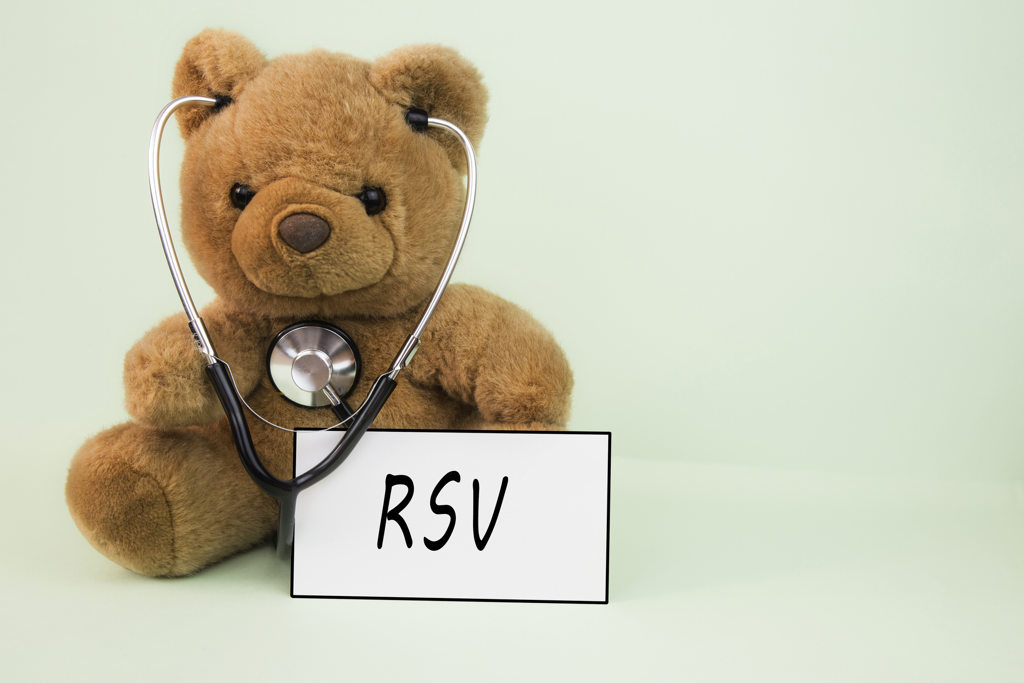
Penn Highlands Healthcare Shares the ABCs of RSV
Just when parents and guardians of young children could begin to breathe a sigh of relief that the COVID-19 pandemic was less of a threat to the health of their children, an old familiar virus began to take hold on younger children. In hospitals from coast to coast, emergency rooms and pediatric inpatient beds are filled with children with Respiratory Syncytial Virus Infection commonly called RSV. In fact, some regions are nearing seasonal peak levels.
What is RSV?
Respiratory Syncytial Virus, or RSV, is a common respiratory virus that usually causes mild, cold-like symptoms. Most people usually recover in a week or two. However, RSV can be serious in infants and older adults. It is the most common cause of bronchiolitis (inflammation of the small airways in the lung) and pneumonia in children younger than age 1.
“We typically see a spike in RSV cases in winter, therefore this surge in cases in unusual,” said Thomas Sisk, MD, family medicine physician at Penn Highlands Family Medicine in Finleyville, Pennsylvania. “The rise in cases could be due to how the virus is spread. While it is contracted through respiratory droplets when people cough, sneeze or talk, much like influenza, however RSV can live on surfaces and objects such as toys and clothing for hours.”
What are the symptoms of RSV?
Symptoms of RSV usually are present within four to six days after infection. Common symptoms include:
- Runny nose
- Decrease in appetite
- Coughing
- Sneezing
- Fever
- Wheezing
RSV symptoms usually appear in stages and not all at once. In very young infants with RSV, the only symptoms may be irritability, decreased activity and breathing difficulties.
“Almost all children will have had an RSV infection by their second birthday,” said Dr. Sisk. “Most children were protected from RSV and other common viruses during the pandemic when they saw fewer people, were in less public places and when they or those around them wore masks.”
What is the treatment?
Since this is a virus, it will not respond to antibiotics. Therefore, there is not a specific treatment. With mild cases, it is a matter of managing the symptoms while the virus runs its course. Over-the-counter fever reducers, such as acetaminophen or ibuprofen, will help manage fever and pain. Both children and adults should drink fluids to prevent dehydration. In addition, doctors may prescribe oral steroids or an inhaler to make breathing easier.
According to the Centers for Disease Control and Prevention, healthy adults and infants infected with RSV do not usually need to be hospitalized. But some people with RSV infection, especially older adults and infants younger than 6 months of age, may need to be hospitalized if they are having trouble breathing or are dehydrated. In the most severe cases, a person may require additional oxygen or intubation (have a breathing tube inserted through the mouth and down to the airway) with mechanical ventilation (a machine to help a person breathe). In most of these cases, hospitalization only lasts a few days.
What can you do to help prevent RSV?
It is important to follow the practices outlined below if you or a member of your family has cold-like symptoms:
- Cover coughs and sneezes with a tissue or use your upper arm -- not your hands.
- Wash your hands often with soap and water for at least 20 seconds.
- Avoid close contact, such as kissing, shaking hands, and sharing cups and eating utensils, with others.
- Sanitize frequently touched surfaces such as doorknobs and mobile devices.
Ideally, people with cold-like symptoms should not interact with children at high risk for severe RSV disease, including premature infants, children younger than 2 years of age with chronic lung or heart conditions and children with weakened immune systems.
Whether you need an appointment for a sick child, an immunization or an annual physical, the Primary Care Physicians at Penn Highlands Family Medicine can take care of your whole family. From infants through seniors, family medicine physicians see patients of all ages. And they’re dedicated to caring for the whole person, with a focus on forming ongoing personal relationships with patients to help them provide the most comprehensive care possible. For more information, visit www.phhealthcare.org/familymedicine.
